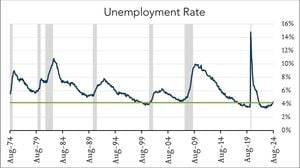Donald Trump's anticipated comeback to the White House is raising eyebrows not just among American voters but also across the Atlantic, particularly within European financial circles. Recent projections by ING economist Bert Colijn suggest his presidency could significantly influence inflation rates, particularly within the eurozone and the Netherlands. According to Colijn, should Trump secure victory on November 5, it’s likely we would witness heightened inflationary pressures, mirroring sentiments previously observed during his first term.
Polling dynamics have recently shifted, showing Trump edging upward as election day approaches. This confirmation of potential strength for his campaign coincides with noticeable reactions from global markets, which are beginning to factor his potential return. Colijn's analysis reflects these sentiments, pointing to rising interest rates on U.S. capital markets and the dollar strengthening as speculators prepare for Trump’s possible re-election.
Prominent among the factors driving these forecasts is Trump's economic policy—specifically his inclination for lowering taxes and imposing significant import duties. These measures, as noted by Colijn, tend to increase spending capabilities among consumers, thereby raising the likelihood of companies hiking their prices. Higher import tariffs are particularly troubling, as they naturally result in elevated production costs, which businesses usually pass onto consumers.
Interestingly, the expected inflation increases are likely to stimulate higher interest rates within the American market. Conversely, the eurozone anticipates much weaker growth prospects, which might delay any moves toward lowering interest rates. This divergence of interest rate trajectories could amplify strain on the euro, making Dutch export goods more attractively priced for international buyers temporarily.
While this could benefit the Netherlands’ export-driven economy, Colijn warns of potential volatility should Trump impose heavier import duties as part of his economic agenda. A weaker euro would escalate import prices and could particularly affect fuel costs, as oil prices are denominated in dollars. Such inflation, intriguingly, might not be viewed negatively by eurozone countries, especially since recent inflation rates have dipped below the strategic target of two percent.
Colijn elaborates on how the anticipated inflation level will likely linger above the two percent mark for the Netherlands, creating mixed feelings among economists and policymakers alike. After all, sustained inflation poses unique challenges to consumers and businesses.
Meanwhile, the U.S. might also feel the tremors of Trump's presidency from different angles, particularly relating to its relationship with the foreign exchange markets. Roger J. Kerr sheds light on how the markets seem to have reacted preemptively to Trump’s potential victory, implying it might prompt stronger demand for the greenback. He notes significant currency movements already at play, driven partly by traders positioning themselves favorably for this outcome.
The stronger dollar reflects expectations stemming from various interconnected factors. First, potential tax reductions could stimulate economic growth, albeit amid debates on their effectiveness. Second, increases to import tariffs would likely stoke inflation, complicate Fed policies, and hinder the central bank’s ability to adjust interest rates. Finally, retaliatory tariffs could lead to elevated economic uncertainty, historically fostering demand for safe-haven assets like the U.S. dollar.
Data released on the American economic front has also tied closely with shifts toward greater dollar strength, as positive job growth and retail sales figures have emerged recently. This seems to reflect optimism for the upcoming election outcome as various betting markets adjust their odds to account for Trump’s rising popularity.
With the stakes this high, traders are observing the situation closely, acknowledging the pivotal nature of the presidential race outcomes. Should Trump emerge victorious, Kerr indicates we might observe continued appreciation of the dollar. Conversely, any Democratic success or complications during balloting could swiftly reverse these market trends, leading to more volatility.
Higher inflation resulting from Trump’s economic policies paints a mixed picture. It may present short-term opportunities within the Dutch export sector, but it also could lead to increased burdens on consumers at home. The broader European economic fabric stands to be affected too, particularly as interdependencies continue to shape trading relationships.
The convergence of various market reactions underlines the intricacies of modern economies, where political landscapes can have far-reaching effects on international finance. Analysts remain cautious yet attentive as the global community braces for the fallout from the American electoral process, representing a potential watershed moment for inflation trends both across the Atlantic and globally.



